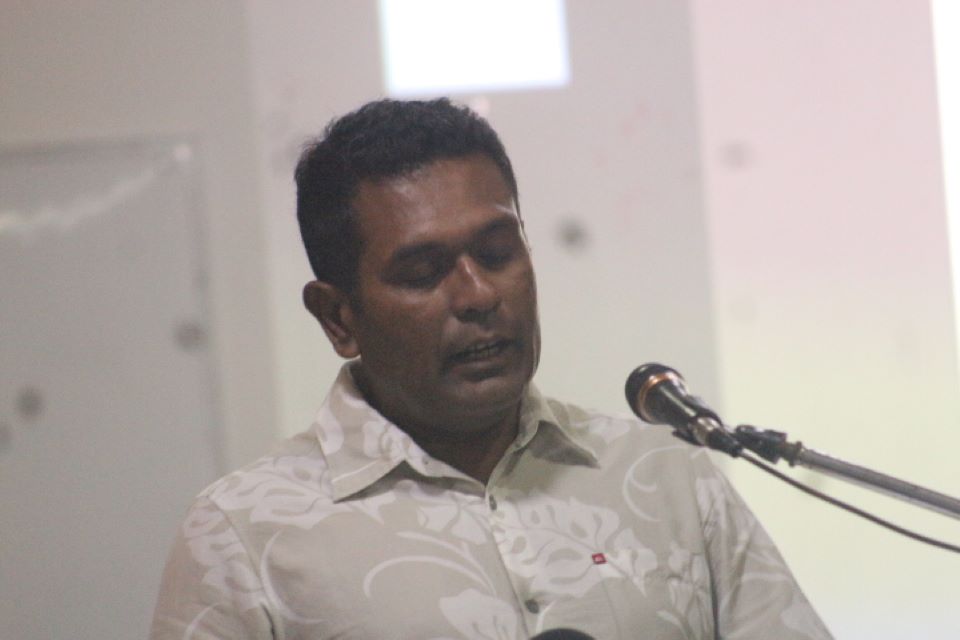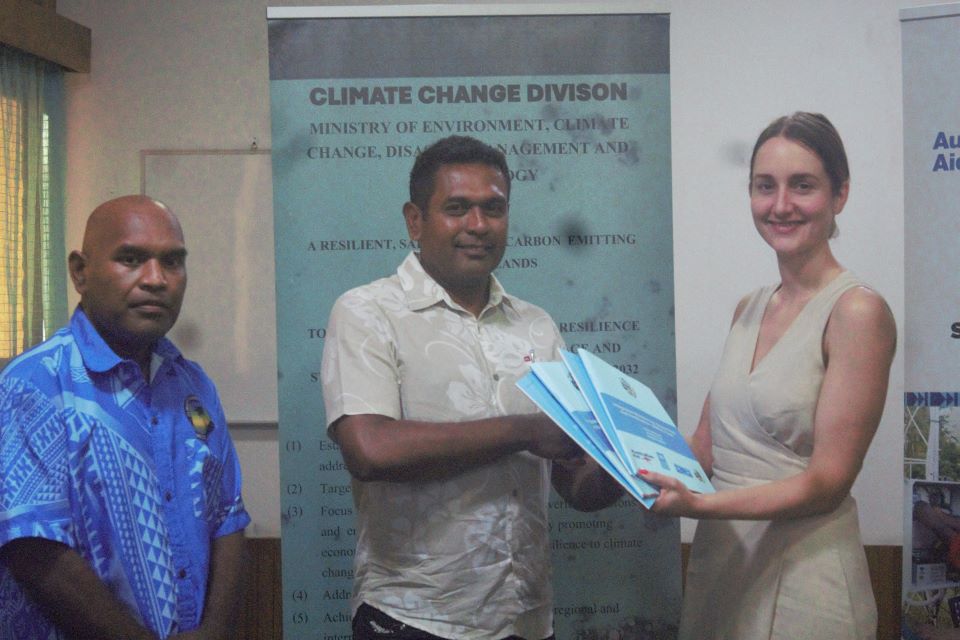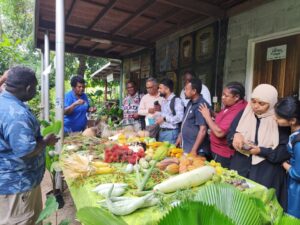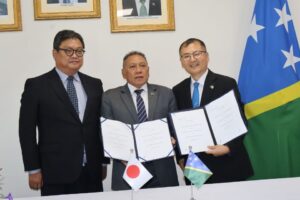BY CHRIS ALEX
THE Solomon Islands Ministry of Environment, Climate Change, Disaster Management, and Meteorology officially launched the Integrated Monitoring, Reporting, and Verification (IMRV) System at a ceremony held at Honiara Hotel recently last week.
The launch marks a vital moment in the country’s ongoing commitment to addressing climate change and fulfilling its global environmental responsibilities.
Delivering the keynote address, Supervising Permanent Secretary (PS) Karl Kuper highlighted the importance of the IMRV system, which is designed to enhance the country’s transparency and accountability in tracking its climate actions.
“Today marks a significant milestone in our nation’s effort and ongoing commitment toward addressing climate change and fulfilling our global responsibilities,” Kuper stated.

Providing background on the Solomon Islands’ role in climate action, the Supervising Permanent Secretary reminded the audience of the country’s long-standing commitment to international environmental agreements.
The Solomon Islands ratified the United Nations Framework Convention on Climate Change (UNFCCC) in 1994, and is a signatory to both the Kyoto Protocol and the Paris Agreement. These agreements guide the Solomon Islands in stabilizing greenhouse gas concentrations, with the Paris Agreement setting ambitious goals to limit global warming below 2 degrees Celsius, with an aspiration of limiting it to 1.5 degrees Celsius.
“The Solomon Islands government, through its Nationally Determined Contributions (NDCs), has outlined its efforts to reduce greenhouse emissions. Actions, however, are only meaningful if we can track them effectively, which is why the enhanced transparency framework under Article 13 of the Paris Agreement plays a vital role,” he added.
Starting in 2024, the Solomon Islands will submit bi-annual reports on key areas including greenhouse gas inventories, progress toward NDC goals, adaptation strategies, and the support received in finance, technology, and capacity building.
Despite being classified as both a Least Developed Country (LDC) and a Small Island Developing State (SIDS), the Solomon Islands remains committed to demonstrating its climate action on the global stage.
The IMRV tool, developed in partnership with Subaru Consulting Services, with support from UNDP Solomon Islands and funding from the Australian government, is tailored to meet the specific needs of the Solomon Islands.
The tool comprises six key modules: the Greenhouse Gas Inventory Model, Greenhouse Gas Mitigation Model, Adaptation Model, Support needed and Received Model, Sustainable Development Goals (SDG) Tracking Model, and the Administration and User Management Model.
These modules will enable the Solomon Islands to track emissions, monitor mitigation efforts, measure adaptation progress, and align its climate actions with broader development goals.
“This tool is more than just a software. It is a vital component of our climate strategy,” Kuper stressed. “Through the IMRV tool, we will be able to track our progress, meet international reporting requirements, and strengthen our ability to combat climate change.”
In his closing remarks, Kuper extended gratitude to the key partners involved in developing the IMRV tool, including Subaru Consultancy Service, UNDP Solomon Islands, and the Australian government. He also encouraged all stakeholders – government agencies, development partners, civil society, and NGOs – to engage with the system, stressing that their involvement would be crucial to the tool’s success.
The launch of the IMRV system represents a landmark moment in the Solomon Islands’ journey towards greater climate accountability and transparency. With this new tool, the nation is better equipped to meet its global climate commitments while strengthening its resilience to climate change.
The IMRV system is now officially in operation, marking a new chapter in the Solomon Islands’ climate strategy.




